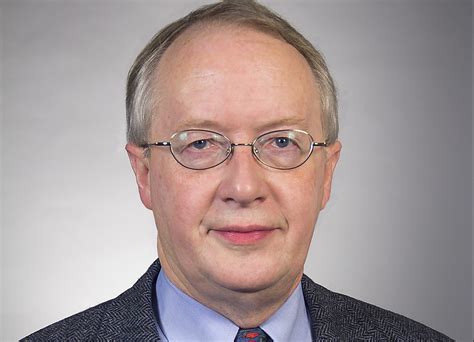A Quote by Yuval Noah Harari
All the major problems of the world today are global in essence, and they cannot be solved unless through some kind of global cooperation. It's not just climate change, which is, like, the most obvious example people give. I think more in terms of technological disruption.
Related Quotes
I think the challenge of climate change in particular is the challenge for us to create and produce new norms for a new kind of world. And that's why I think as important as the issue of climate change is, it's even more important than it seems because if we can't evolve very quickly, new norms to deal with issues like climate change, we're not going to be able to survive in the kind of world we've created. So I think, really, the whole nature of democracy, of governance, of global community and of solving the kinds of problems of the 21st Century are really at stake.
Climate scientists think of nothing but climate and then express their concerns in terms of constructs such as global mean surface temperature. But we live in a world in which all sorts of change is happening all the time, and the only way to understand what climate change will bring is to tell stories about how it manifests in people's lives.
Many scales of climate change are in fact natural, from the slow tectonic scale, to the fast changes embedded within glacial and interglacial times, to the even more dramatic changes that characterize a switch from glacial to interglacial. So why worry about global warming, which is just one more scale of climate change? The problem is that global warming is essentially off the scale of normal in two ways: the rate at which this climate change is taking place, and how different the "new" climate is compared to what came before.
The United States is strongly committed to the IPCC process of international cooperation on global climate change. We consider it vital that the community of nations be drawn together in an orderly, disciplined, rational way to review the history of our global environment, to assess the potential for future climate change, and to develop effective programs. The state of the science, the social and economic impacts, and the appropriate strategies all are crucial components to a global resolution. The stakes here are very high; the consequences, very significant.
Kyoto is dead and has been dead, but that doesn't mean that it hasn't done some real damage and won't continue to do some real damage," "If global warming turns out to be a problem, which I doubt, it won't be solved by making ourselves poorer through energy rationing." "It will be solved through building resiliency and capability into society and through long-term technological innovation and transformation.
I think it's just yet another piece to cause confusion and I think that the 'so-called scientific debate' is very silly now - It's like a bunch of theologians arguing over how many angels you can stick on the head of a needle. When you've got a side that changes from global warming, global warming, global warming to climate change, which is intuitive - the climate has always been changing since the beginning of time - and then just begins to claim every answer is the correct answer, you often stand back, and I don't care who you are, you have to question as to what the real motive is in this.
I spend most of my time in South Korea but at least one-third of my time is spent traveling around the world, meeting people, speaking about climate change and sustainable development and trying to foster global citizenship especially for young people. What I observe is there clearly is a need for global citizenship. That is exactly right. We are having troubles around the world. We need global vision.






































